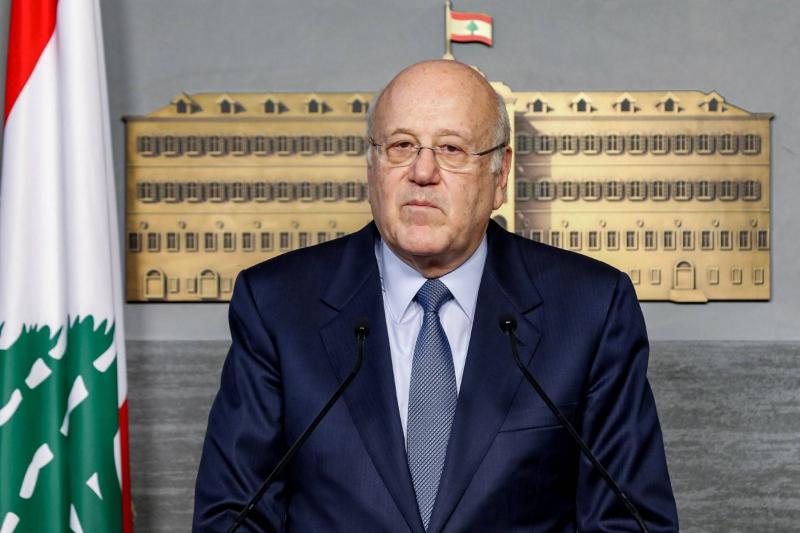During an interview with the Italian newspaper "La Repubblica" at the conclusion of his visit to the Vatican and Rome, caretaker Prime Minister Najib Mikati expressed hope for the swift election of a new president to initiate the resolution of other pressing issues. Regarding the increasing number of boats carrying irregular migrants from Lebanon to Europe, he noted that this matter poses a problem for both Lebanon and Italy. He requested Italian Prime Minister Giorgia Meloni to convene a joint dialogue table where all participating countries can propose ideas and work towards a definitive solution. There is a European meeting in Brussels scheduled for June 15 to discuss the refugee issue, which Mikati hopes will serve as a moment to address the irregular migration file.
In response to a question about the presence of Syrians, Iraqis, and Lebanese on the boats of irregular migrants from Lebanon, he stated, "The problem does not lie with Lebanese who want to leave as they can apply for a visa; the main issue is the non-Lebanese in Lebanon who are undocumented and rely on human traffickers. Allowing people to leave without permission has become a business, and we, the concerned countries, must cooperate to stop this phenomenon to protect our people and neighbors."
Regarding other issues discussed with Meloni, he said, "I appreciate the hard work Meloni is doing to support the Italian economy by expanding Italy's relationships with both the East and West. Our bilateral relations are historically strong and excellent at all levels. I reiterated our gratitude for Italy's ongoing support for Lebanon, especially regarding Italy's vital role in supporting and participating in UNIFIL's mission and its role in local development in areas of its deployment in the south while coexisting peacefully with the local community. I also expressed our deep appreciation for Italy's crucial and significant role in supporting the military."
On the gas extraction issue in Lebanese territorial waters, he stated that signing the maritime border demarcation agreement is a source of peace for southern Lebanon. Without it, Qatar Petroleum, Total, and Eni would not have been able to conduct exploratory operations, which are not easy. He pointed out that there is currently no plan for gas exportation or formal commitments, and it is premature to discuss this topic. However, it is evident that it will be exported to Europe, our friends, and the nearest countries.
He confirmed that the Saudi-Iranian agreement and its implications for Lebanon is an important step, but he believes the priority now is on the issue of peace in Yemen before discussing other files, including Lebanon. He emphasized that dialogue regarding Lebanon must be internal without external influences.
Responding to a question about the investigation into the Beirut port explosion, he explained that "the investigation is progressing, and we are waiting for its results to uncover the truth. There are laws that stipulate the existence of special courts for presidents and government members, and the government cannot intervene in these laws. The investigating judge wants to treat everyone equally, but the laws do not allow for that."
Regarding the rise in suicide cases, particularly among the youth, he replied, "This has been happening for some time as the situation in Lebanon is not easy, and people are suffering. However, we are striving with all our efforts to solve the existing problems."




